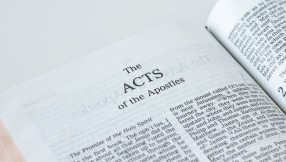Deliver Public Services Until Gay Rights Law Stops You, Christians Told
The Evangelical Alliance has urged Christians to continue to serve until the law is clarified, following the passing of the regulations by Parliament on 21st March 2007.
The regulations seek to prevent discrimination on grounds of sexual orientation in the provision of goods, facilities and services, and the Evangelical Alliance said it has consistently welcomed the anti-discrimination principles behind them.
However, there are concerns that the regulations, which have undergone minimal scrutiny from MPs, do not give religion and belief as equal recognition as sexual orientation rights.
The EA Director of Public Policy, Dr R David Muir, said: "Following months of constructive engagement with the Government in an endeavour to ensure a fair playing field for both sexual orientation rights and those of religion and belief, we believe a fair balance has not been met.
"We agree with the Archbishop of Canterbury that the rights of conscience cannot be made subject to legislation, however well meaning."
But Dr Muir also appealed to Christians not to stop offering public services until the legal implications of the regulations, which are still unclear, are settled, in the courts if necessary.
"The Evangelical Alliance encourages members - who in many cases have been delivering public services for centuries - not to close down these services because of a perceived threat, but to continue delivering them until the law stops them," he said.
"Unfortunately, the controversial nature of these regulations, and their lack of parliamentary scrutiny, means that inevitably they are likely to end up being argued through the courts."
He added that it is likely the issue of religious freedom will continue to be on the public agenda.
"We hope to persist in constructive dialogue with the Government urging application of the law in a way which treats all citizens fairly, but which allows Christians to deliver services in a Christian way and exercise fundamental freedoms of conscience and religion and belief."













